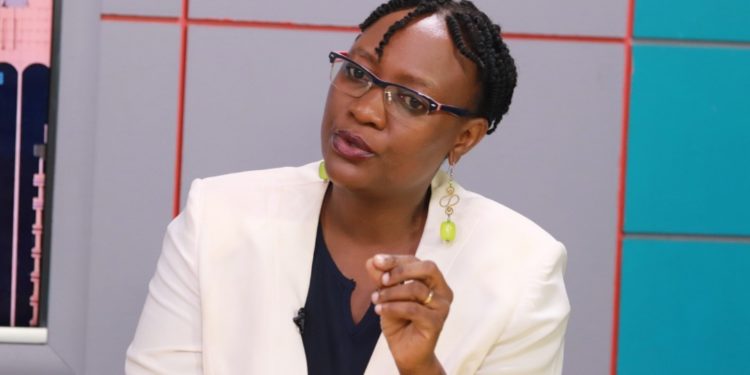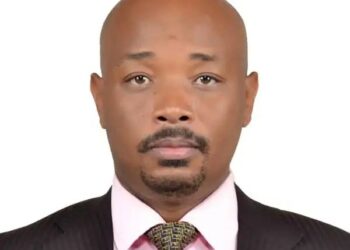The 2016 Elections left several unanswered questions with some voters contesting and others out rightly rejecting the electoral results. As such the presidential election was contested in the Supreme Court and the justices made 10 recommendations, which they said, if they were not honoured before the next election the ground would not be level. The justices gave the Executive, Parliament and the Attorney General two years within which to pass electoral reforms.
The Game Changers, a group of young dynamic CSO activists in Uganda keenly followed up on this ruling and relentlessly advocated for implementation of the mentioned recommendations if Uganda was to have a free, fair and credible election come 2021. Key amongst the reforms that the Game Changers and Ugandans at large overwhelmingly vouched for after the 2016 elections; was the need for transparency during transmission of results. According to the Afrobarometer Round 7 survey dated April 30, 2019, 96% of Ugandans supported reforms to reduce the size of Parliament and improve elections especially transparency in vote tallying, transmission and declaration.
Ugandans according to the survey felt that the election results were being altered at the level of vote tallying, transmission and declaration. We head for yet another election in five months with this significant ingredient to the electoral process missing. The processes leading to the 2021 Elections have left many of the 17.5 million voters either confused about how the elections will be conducted and if the process can be credible in the circumstances. Some voters have discounted the process altogether because the pulse of the elections (campaigns) are not to be conducted as previously known.
The auspice of COVID-19 has not only brought into question the way the campaigns are to be conducted but has also posed a challenge for the voters who usually stayed at polling stations to guard their votes. In the 2021 election, it is highly likely that after casting their vote, the voter will be required to return home and wait for the Electoral Commission to announce the results. The only people who are likely to be permitted to witness the tallying at polling stations are the party agents, the Police, the election observers and the Electoral Commission officials.
If in 2016, the results were counted at polling stations in the face of a multitude of voters but were contested, how about in 2021 where the voter will not be allowed to stay at the polling station to avoid crowding due to COVID-19; how much more acceptable will these results be?
Seeing that the pre-requisite reforms needed in the transparency of the tallying, transmission and declaration of results are missing ahead of the 2021 Elections; the Electoral Commission should work out a programme to allow the citizenry a chance for greater participation in counting, tallying, and tabulation of results. This will reduce the anxiety, anger and violence that is looming over a process that has been contested right from the start. For instance, the EC in addition to the party agents should allow for at least 15 voters in each village to stay at each polling station after casting votes. These 15 voters should be from the various political parties and trusted by fellow villagers.
According to the Citizens’ Elections Observers Network Uganda (CEON-U) Report 2016, lack of transparency in elections and transmission of results undermined the legitimacy and acceptability of the outcomes. As such, the Electoral Commission was tasked with developing a mechanism in which the citizenry would be given a chance for greater participation in counting, tallying, and tabulation of results. Observers should be present at all levels of transmission of results with clear guidelines to follow through the process. There should also be a transparent display of the flow of results at all tabulation centres. Whereas CEON-U observed that results were posted at 91% of polling stations on Election Day, at the National Tally Centre results were only released in an aggregated manner. This denied the public the opportunity to verify the results from the polling stations. Some Ugandans had recorded results from their polling stations and were eager to see if what they had recorded tallied with what was being read at the National Tallying Center, but they were denied this chance. This lack of transparency in transmission of results created uncertainty in the 2016 elections which undermined public confidence in the results. This was compounded by the Electoral Commission’s restriction on observers who were prohibited to declare “any quantitative” results information.
Given the circumstances that surround the tallying, transmission and declaration of results, the citizen observers in 2016, recommended that the law should clearly guarantee citizens the right to participate in their governance processes, of which elections form a part, and freely express any quantitative results information that they may have, though the mandate to declare winners remains with the electoral management body, which works in trust of the citizenry.
The tabulation process was also disrupted at several district tally centres during the 2016 Elections which left many candidates and voters upset. It is no wonder that there were 264 election petitions were logged at the high court and of these 118 were appealed.
The general election system including the model of the election management body, nature of electoral laws, levels of civic consciousness, the manner in which candidates raise and spend funds during election campaigns all have a significant bearing on the kind of elections a society is bound to have and broadly affect the democratic operating environment.
Uganda has had five general elections since independence in 1962. Each of the elections has been a learning experience, revealing areas that require strengthening as highlighted above. It behoves all of us to strive to ensure that we have a legal, legitimate, transparent and credible electoral process that delivers the will of the people,
The author is the Coordinator Game Changers and Ag. Executive Director CCEDU.
Do you have a story in your community or an opinion to share with us: Email us at editorial@watchdoguganda.com













